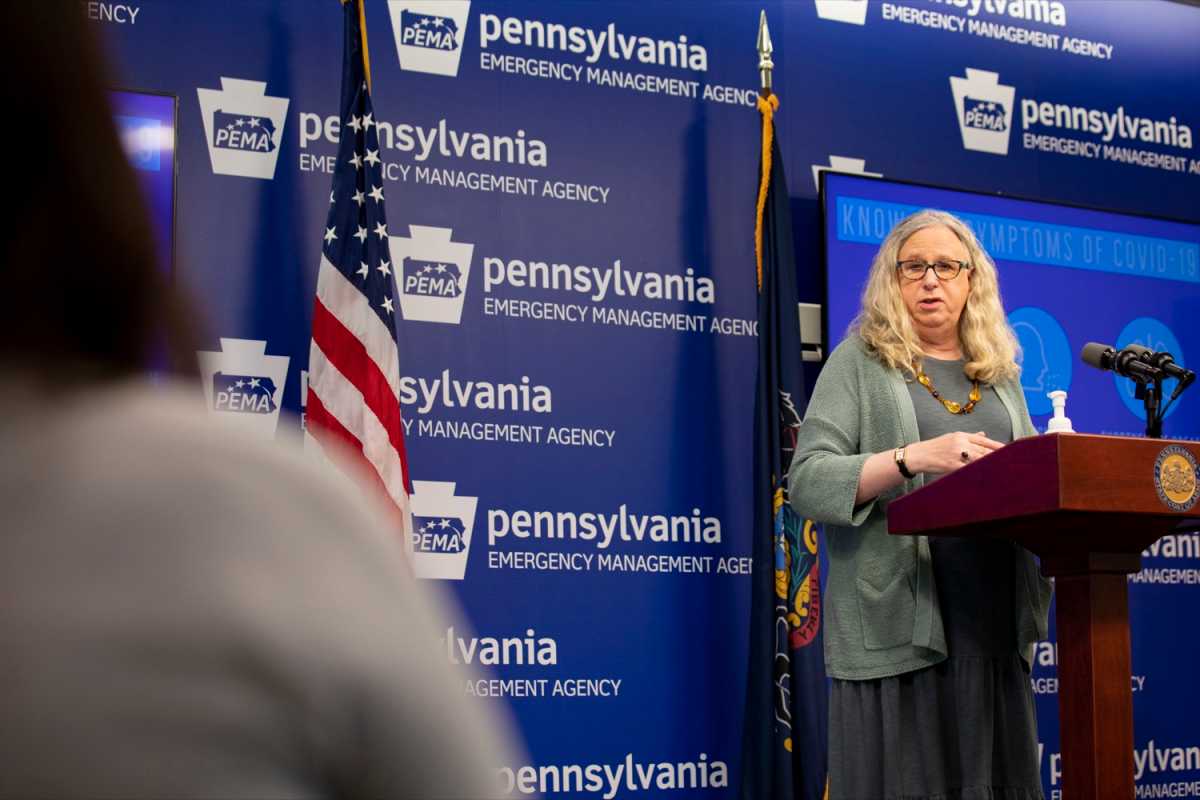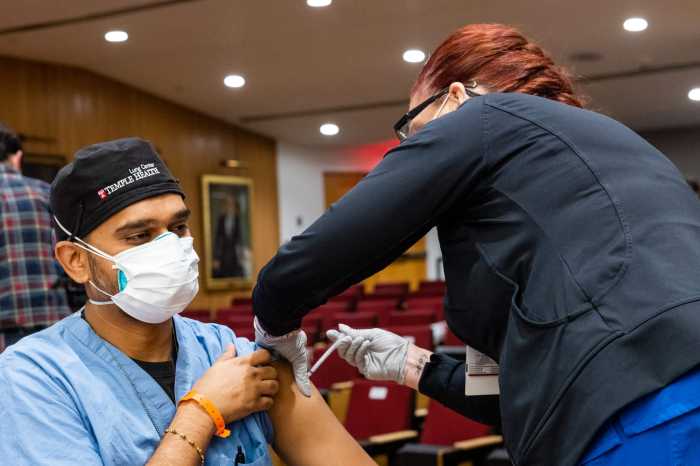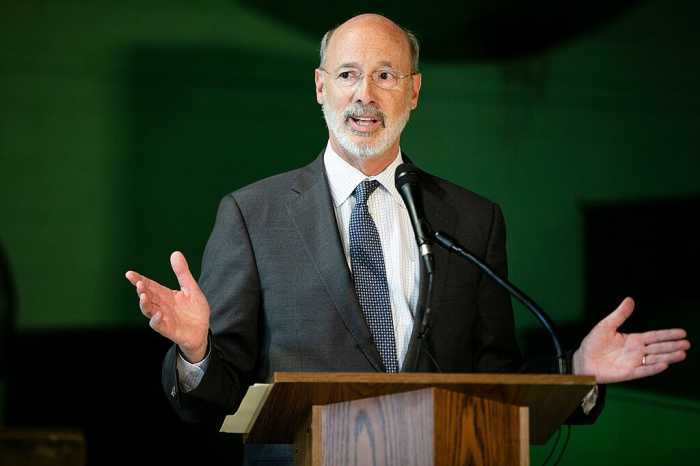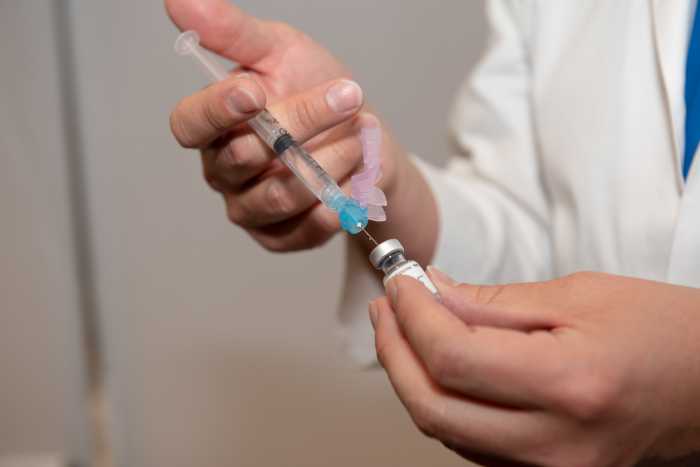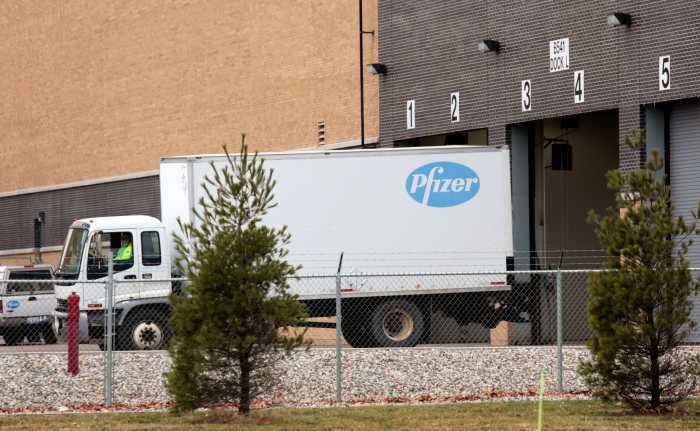A new strain of the novel coronavirus, first identified last month in the United Kingdom and believed to be more contagious, has been found in Pennsylvania, state officials said Thursday.
The case occurred in a person in Dauphin County who had been exposed internationally. They had mild symptoms and have since completed isolation at home, according to the state’s Department of Health.
Contract tracers worked with the person to monitor anyone who was in close contact with them.
The variant, also known as B.1.1.7, has yet to be recognized in Philadelphia, said James Garrow, a spokesman for the city’s Department of Public Health, though officials expect to identify it at some point.
Pennsylvania Health Secretary Rachel Levine said the state has been sending 10 to 35 samples every two weeks to the Centers of Disease Control and Prevention for testing. Identifying the strain requires a more complex examination than a regular COVID-19 test.
“Public health experts are in the early stages of working to better understand this new variant, how it spreads and how it affects people who are infected with it,” Levine said in a statement.
City officials have also been working with the CDC and local laboratories to recognize the strain. Public health experts believe the variant will not be resistant to the already in-use COVID-19 vaccines.
On Thursday, state leaders released new guidelines for schools, advising some in-person classes for elementary school students even in areas with high levels of virus transmission.
Previously, the Pennsylvania Department of Education had recommended 100% remote learning for all districts in areas with “substantial spread,” measured by case rates and positive test percentage. All of the state’s 67 counties currently fall into that category.
The new guideline, which will go into effect Jan. 25, says elementary school children may be able to return with a hybrid model, with online instruction remaining in place for middle and high schoolers.
“Recent studies have shown that when mitigation efforts, such as universal masking, physical distancing, and hand hygiene are followed, it may be safer for younger children, particularly elementary grade students, to return to in-person instruction,” Levine said in a statement.
Public school students in Philadelphia haven’t had face-to-face classes since March, and, in November, the School District of Philadelphia announced it would remain fully virtual “until further notice.”
District spokesperson Monica Lewis said the school system continues to work with health officials and city leaders to “inform plans for in-person learning that keep the safety, health and well-being of our students, staff and school communities as our top priority.”
Some private, Catholic and charter schools in the city have had in-person instruction since September. In-person high school classes, which had been temporarily paused, were permitted to resume Monday.
Teachers and other school staff could be included in Phase 1B of the area’s vaccine distribution plan, which is expected to begin in early February.
Philadelphia’s vaccine advisory group is still working on who will be vaccinated during the phase, but they are likely to follow federal recommendations, which call for essential workers and people over the age of 75 to get inoculated.
During a virtual town hall meeting Wednesday with local Democratic state senators, Health Commissioner Thomas Farley said, at the current pace of vaccine roll-out, it could take until Sept. 1 to immunize two-thirds of the city’s population.
“In Philadelphia, in Pennsylvania, in the nation as a whole, in the world as a whole, there are just not enough doses,” Farley said. “The companies are not able to produce it fast enough.”
So far, about 73,000 doses have arrived in the city, and officials expect to receive 19,000 a week for the remainder of January.
Dr. Tony Reed, Temple University Health System’s chief medical officer, said at the town hall that they are rushing to administer their doses, giving out 300 injections a day at Temple’s facilities.
“We’re given 2,000 doses a week, and we’re told to use them in that week,” he said. “I have about 50 doses left at the end of each week when we’re done.”
State Sen. Vincent Hughes, who represents parts of Philadelphia and Montgomery County, said about $150 million is earmarked for vaccine distribution in Pennsylvania as part of the recent Congressional spending package
“We want to follow the money and make sure it gets to where it needs to,” Hughes added. “Obviously, we’re all very concerned about the rollout of the vaccine and want to see a much more aggressive program with respect to the vaccine.”
Philadelphia, which is handling its own roll-out, has administered 35,107 doses, and, in the rest of the state, 177,767 people have received their first injection and just over 500 have gotten both shots.
There are 660 people with the virus hospitalized in Philadelphia. COVID-19 hospitalizations reached 950 in mid-December, just below spring’s peak of 1,000.
City officials reported 729 additional cases, 63 probable infections and 23 deaths Thursday, raising the death toll to 2,573. Pennsylvania recorded 9,698 new cases and 265 virus-related fatalities.



